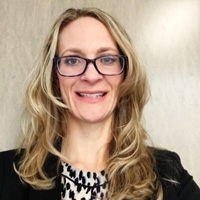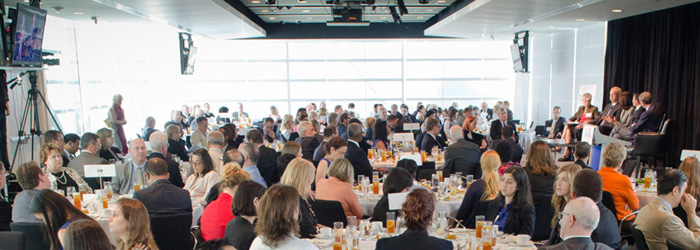This post is part of the Early Career Scientist Policy Subcommittee’s series on science policy fellowships.
Research!America sponsors a 3–6-month science policy fellowship for those with a PhD or other terminal degree. The Research!America alliance is made up of over 400 science organizations: from research institutions like Johns Hopkins to scientific societies like GSA to drug development companies like Merck & Co, Inc.

Sara Chang
Based in Crystal City, Va, this fellowship focuses on biomedical and health services research, while giving fellows the opportunity to monitor policy issues, partake in self-directed projects related to science policy, and gain first-hand experience in policy-making by attending briefings on Capitol Hill.
I spoke with Sara Chang, who is the Director of Policy and Advocacy at Research!America, about her experience as a Program Officer for this fellowship. Sara previously worked for the Lupus Foundation of America as the Director of Advocacy and Government Relations as well as a Legislative Correspondent for Representative Tom Osborne.
Q: What does the application evaluation process entail?
We receive over 40 applications each cycle, and we only take one fellow at a time. We ask the applicants to submit a resume, a cover letter, and a writing sample. We don’t expect applicants to have extensive policy experience already; instead, we are looking for people with an in-depth passion and experience with science and research that they can convey to others in the policy space. We prefer writing samples aimed at the general public on science or policy, rather than in-depth scientific pieces in order to get a holistic view of the applicant.
The most important part of the application is the cover letter – we really want to get a sense of the applicant. Over the years, I’ve become intrigued by all the different reasons that lead scientists who have mostly trained at the bench to come and learn more about advocacy. We look at their interests and aim to understand why they want to become an advocate. A passion for advocacy and learning are the most valuable qualities in a fellow.
Q: How long do the fellowships last?
Some fellows are with us for three months and others closer to six. It really depends on the mutual needs of the organization and a fellow’s individual needs. They initially sign a three-month contract and then depending on what they garner from this time, we can discuss extending their contract. One of our goals is to help fellows go on to the next stage of their career.
Q: What kinds of topics do the fellows work on?
We aim to offer a broad experience for the fellows all while working toward our mission to elevate the priority of medical and health research. Fellows track relevant policy issues, including budget and appropriations legislation. Often, we are going to Capitol Hill to hold meetings to share the value of scientific research and of young investigators’ contributions with policy makers. If Congress is working on something of particular relevance, such as the Labor, Health, and Human Services appropriations for example, then we will work on background materials for the various Congressional meetings.
We also take a deep dive into what’s happening in the science policy landscape to address areas not currently being covered on Capitol Hill. This allows us to provide important information to our membership, for example, our factsheets that showcase the benefits of research by state. We have specific issue factsheets that can be used broadly outside of Capitol Hill and on social media to highlight the value of innovation and how research can save lives and money.
Q: Do fellows have an opportunity to advocate for something they’re passionate about?
The topics generally follow the current policy landscape as well as Research!America’s current needs, but we do allow our fellows and interns to look deeper into topics of interest to them. A recent fellow was interested in public health and helped with our Public Health Thank You Day campaign. During the month-long campaign, she had the opportunity to interview many prominent public health professionals This is an example of how the fellowship is mutually beneficial — allowing Research!America to learn from the fellow’s skills as well as for Research!America to teach about policy and advocacy.
Q: What are the features of this opportunity that prepare fellows to transition into policy?
This fellowship gives researchers access to relevant policy experience both on and off Capitol Hill. The experience of attending meetings with agency officials, as well as briefings with health and patient advocacy organizations, is valuable. Fellows are given the responsibility of representing Research!America in specific meetings on the Hill, so that they gain practical experience of meeting dynamics. Fellows also learn a different kind of research in finding the data for the factsheets and writing pieces for newsletters and our website. Each fellow has their own project, such as addressing how we could build a stronger grassroots advocacy network. From their projects, the fellows develop a set of deliverables that they can use to apply for their next position. The fellowship gives each participant an understanding of the particular kind of advocacy they want to focus on.
Q: What do fellows do afterward?
One of our goals is to ensure that our fellows are able to choose their own career path. We hope that they learn enough from this experience that they can determine whether they want to either go back to science or continue to pursue their career in policy. We’ve had some fellows who have gone to the Centers for Disease Control and Prevention because they really found a passion for public health. Others have gone to Capitol Hill, patient advocacy organizations, or scientific societies. We’ve had one go to NIH to go back to research and advocacy. We’ve even had the opportunity to hire some of our previous fellows!
Q: Is there much interaction between previous and current fellows?
Since we are only are able to have one fellow at a time, most of our previous fellows, whether they’re with us or somewhere else, are willing to reach out to the current fellow to act as a resource. They often catch up over coffee or a phone call. Previous fellows also make available to the incoming fellow the toolkits that they’ve developed as well as their independent projects.
To learn about a previous Research!America fellow’s experience, read our interview with Daniel Pham.
About the author:
![]() Thomas Clements received his PhD at Rice University in 2018 and is currently a Lecturer in the Biological Sciences Department at Vanderbilt University having started in Fall 2018. He is also a member of the Early Career Scientist Policy and the Education Committee at the Genetics Society of America. His research centers on improving CRISPR-Cas9 gene editing in zebrafish, but he is also passionate about science literacy and inspiring the next generation of scientists to pursue careers that align with their passions.
Thomas Clements received his PhD at Rice University in 2018 and is currently a Lecturer in the Biological Sciences Department at Vanderbilt University having started in Fall 2018. He is also a member of the Early Career Scientist Policy and the Education Committee at the Genetics Society of America. His research centers on improving CRISPR-Cas9 gene editing in zebrafish, but he is also passionate about science literacy and inspiring the next generation of scientists to pursue careers that align with their passions.













